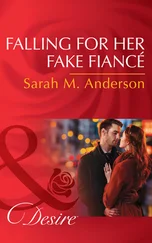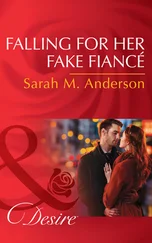“Hilary,” he said, evidently surprised, “what are you doing up so early?”
“I’m very sorry,” I said, “to disturb you so early, but there is something I have to ask you. Is there a poison that smells like camphor?”
“Camphor?” he said doubtfully.
“Yes,” I said, “camphor.”
“Camphor,” he said again, as if attempting to familiarise himself with a newly learnt word in a foreign language.
“Yes, camphor,” I said again. Scientists are not like us: one must be patient with them.
“Hilary,” said my young colleague, “is this one of those questions people keep asking in Oxford about the Provost of Oriel?”
“My dear boy,” I said, “what has the Provost of Oriel to do with it?”
“I mean, is it one of those questions about whether if I say that I saw someone going into Blackwells who looked like the Provost of Oriel and it actually was the Provost of Oriel, it’s true or not to say that he looked like the Provost of Oriel? Because if it’s that sort of question I honestly don’t think I’m up to it at this hour of the morning.”
“Do you mean,” I said, “that camphor is itself a poison?”
“Well, yes, of course. Didn’t you know?”
“No,” I said. “No, I had always supposed its qualities to be medicinal.”
“Moths don’t think so,” said the scientist, laughing uproariously. “Anyway, any medicine’s a poison if you take too much of it. Camphor does have therapeutic uses, of course. I believe it was used quite a lot in traditional Chinese medicine — the natural form of it’s made from the bark of a Chinese tree — and there was a bit of a vogue for it as a tranquilliser at the end of the nineteenth century. But it turned out to be rather unpredictable, so nowadays it’s only used externally.”
“But if you swallowed it, what effect would it have?”
“Oh, quite unpleasant, I should say. Vomiting and convulsions and so on. And possibly a certain amount of delusion. People would probably think you were drunk.”
“When you say it’s a poison — do you mean that someone could die of it?”
“Oh, absolutely. There’ve been quite a few cases of people taking oil of camphor by accident, because they thought it was supposed to be taken internally. It doesn’t taste all that unpleasant, you see — no more unpleasant than people expect medicine to taste.”
“How much would it take to kill someone?”
“For heaven’s sake, Hilary,” said my young colleague rather peevishly, “I’m a chemist, not a pharmacist — I haven’t the faintest idea. Anyway, it would depend on all sorts of things — if you’re in the prime of life and reasonably good shape physically, it’ll take a lot more to kill you than if you’re a child or an elderly invalid.”
“And I suppose it would not be unduly difficult to obtain?”
“Oh, I shouldn’t think so. If you went to one of the Chinese shops in Soho—” He paused and regarded me with a rather stern expression. “Now look here, Hilary — trust me, this is not the right solution to our problems with the Bursar.”
Assuring him that nothing had been further from my mind, I thanked him for his advice and hastened back to my room.
There had been a smell of camphor in the drawing room of the Rectory on the morning after Isabella had died there: Isabella, I recalled, had been suffering from a cold; Daphne had been looking after her. The Reverend Maurice had also been suffering from a cold shortly before his death; the cough mixture Daphne had brought for him tasted of mothballs. Sir Robert’s clothing had smelt of mothballs on the evening he was taken ill: though the incident had occurred many hundreds of miles from Parsons Haver, I supposed that so ardent a devotee of Isabella would keep himself well supplied with a stock of the natural remedies which she had advocated — and which Daphne had no doubt assisted in preparing.
I searched my address book for Regina’s telephone number. But though I rang several times, her telephone remained unanswered. It was not until after midday that I discovered why.
On her arrival home on the previous evening, Regina had seen lights on at the Rectory and considered telephoning Daphne to announce her safe return. It occurred to her, however, that if she did so Daphne might come round and have to be given supper; there was a television programme that she was interested in watching; she yielded to the temptation of solitude.
In the morning, seeing that the lights were still on, she began to wonder if anything were amiss. After an unsuccessful attempt to telephone, she walked across and rang the doorbell; there was no answer. At last, with some reluctance, she made use of the key which Daphne had given her. Having called out to Daphne several times, she made her way through the house to the long black drawing room, where once again an unpleasant experience awaited her.
Daphne by now had been dead for three days; and this time there had been no one to discourage the vulture.
20

THE BURSAR HAD RECEIVEDby the morning’s post a remarkably large donation from Geoffrey Bolton, who was kind enough, in the accompanying letter, to attribute his generosity to certain remarks of my own, made in the course of our train journey together. I regret to say that the Bursar was disappointingly unexcited by my success in fund-raising: the few meagre words of congratulation which he felt obliged to offer me were spoken with difficulty, apparently through clenched teeth.
Weary, by the end of the week, of meeting his furious and resentful glare whenever I dined on High Table or entered the Senior Common Room, I decided to escape once more to London: on Friday, therefore, I was again among those gathered for lunch in the Corkscrew.
The mood was one of cautious optimism: in accordance with the timetable agreed to a week before, Terry Carver had appeared that morning in Chambers and was even now diligently engaged in his final preparations for installing the bookshelves. Our spirits, I have to say, were only a little subdued by thoughts of Daphne’s death. None of us but Julia had known the poor girl, and Julia not well. We could feel no more than that vague sense of lacrimae rerum which is customary on hearing of any unexpected and premature death.
I asked Julia whether her aunt had recovered from the unpleasant experience of discovering the body. Julia replied that she was displaying her customary fortitude, but would no doubt feel relieved when the cause of Daphne’s death had been formally established by the inquest, which was to be held on the following Monday.
“In re which, Hilary,” said Cantrip, turning towards me in a rather accusatory manner, “haven’t you got just the itsiest bit of explaining to do? What you said last week was that we’d all been wasting our time and Isabella and the Reverend had both just died of old age and there was nothing sinister going on at all. So if nothing sinister’s going on, how come this bird Daphne’s suddenly popped her clogs?”
“It seemed not improbable,” said Ragwort, “that the deaths of Isabella and the Reverend Maurice, who were in indifferent health and not in the first flush of youth, should be attributed to natural causes. Daphne, on the other hand, was in her twenties and not known to be suffering from any illness. Her sudden death does seem to require an explanation.”
“Right,” said Cantrip. “So you’d better come up with one pretty fast, Hilary, or we’re not buying you any more booze.”
“My dear Cantrip,” I said kindly, “the insights of Scholarship are neither to be purchased by bribes nor compelled by threats. As it happens, however, I have formed an hypothesis, which explains, as I believe, all the events under consideration, and which I shall be happy to share with you. I must warn you, however, that my explanation has little of the Gothic and sensational element which you may be hoping for.”
Читать дальше













